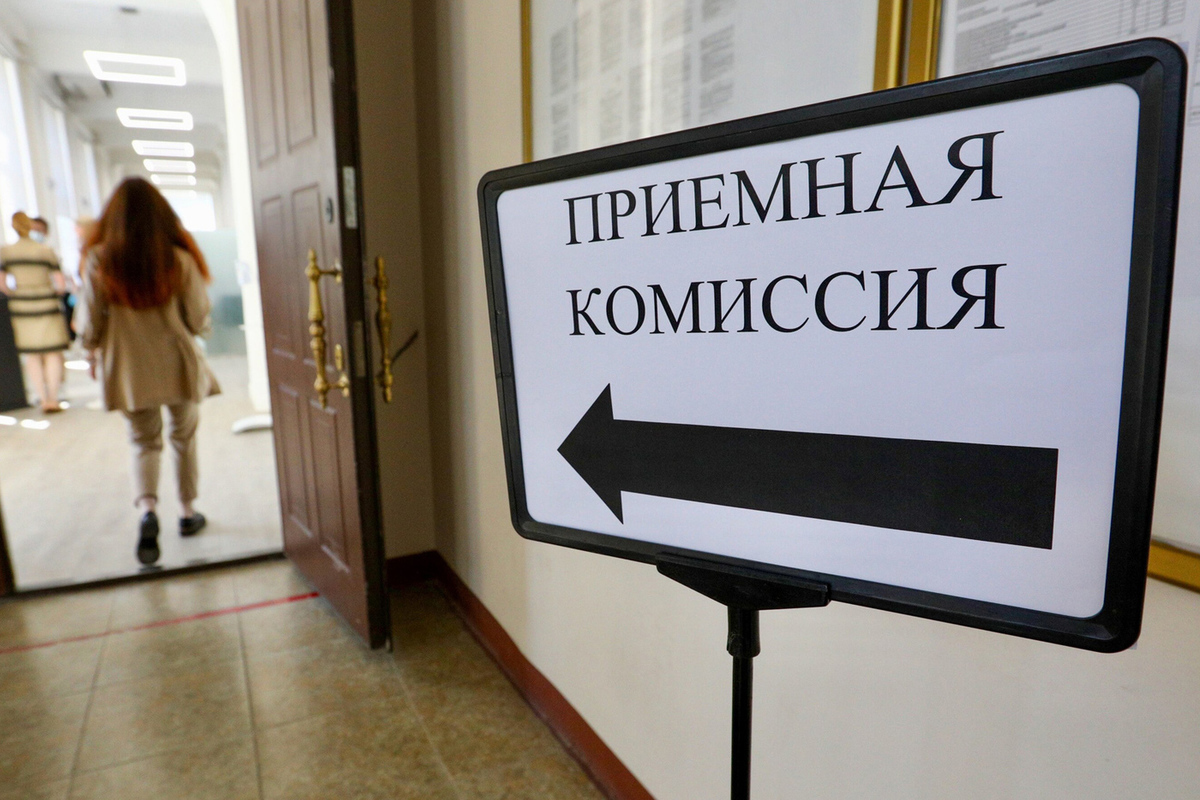Budget places in universities will increase: Russians face the most “tough competition”
[ad_1]

All because of the demographic surge
Just as Monday begins on Saturday, the new admissions campaign at universities starts on November 1. A few days later, the Ministry of Education and Science will begin collecting applications from universities for the distribution of budget places. Anticipating this exciting process, the department told where and who is guaranteed to “grow”, in which areas there will be more budget places.
The number of budget places in universities will increase in 2024, the ministry reports. The Coordination Council under the government, which is responsible for the formation of the KCP (admission control figures) in universities, “approved the total volume of budget places for 2024.” There will be 592 thousand places in Russia – compared to last year’s 590,101.
The trend of recent years continues; we can say that almost all of the 2 thousand were taken from above by engineering. “The largest increase in the number of budget places will occur in engineering training programs – there will be 2,281 more,” said Deputy Prime Minister Dmitry Chernyshenko.
The government hopes that such a distribution will make it possible to “fulfill the main priority” and “strengthen the provision of technological sovereignty with personnel, a priority task set by the president,” Chernyshenko noted. The Deputy Prime Minister added that budget places for universities in new territories will be distributed separately, in a special manner.
Something is also known about other popular areas of study at higher education institutions. Specialties and enlarged groups in the field of “Healthcare and Medical Sciences” will receive 772 additional budget places. “Mechanical Engineering” – 505 places, “Informatics and Computer Science” – 416 places, “Electric and Heat Power Engineering” – 304 places. More budget than before will be allocated to such promising areas as “Mathematical and natural sciences”, “Information security” and “Electronics, radio electronics and communication systems”.
“When planning budget places, we took into account the state guarantee at the rate of no less than 800 students for every 10 thousand people aged 17-30 years,” explained Minister of Science and Higher Education Valery Falkov, speaking at a meeting of the Coordination Council under the Government of the Russian Federation.
Thus, according to the ministry, “at least 50 percent of school graduates should be provided with full-time places in bachelor’s and specialty programs.” And the likelihood of taking a budget-funded place in a master’s program will be among “33 percent of bachelor’s graduates.”
The ministry will finish collecting budget applications from universities and sum up the results at the end of December. They promise that the seats will be divided based on “competitive distribution.” But it is already clear that the course towards the regions is being maintained. Last year, 73% of the budget was allocated to the regions, and this policy paid off. Regional universities have risen, sometimes to top domestic rankings, while the outflow of students has decreased in some regions.
“The distribution of the KCP and applications is only the very first step towards the future admissions campaign,” says education expert Maria Bushueva. “But some trends and certain things can be judged on the basis of past years. It is already clear that the miscalculation of 2022, when more than 230 thousand budget places were allocated to future engineers, will not be repeated. But it turned out that there were much fewer graduates who wrote specialized mathematics – a mandatory Unified State Examination for admission to these specialties. The result was shortfalls and a record drop in passing grades in a number of well-known universities. Already last year such a imbalance was not observed. But another difficulty arose – there were too many “targeted” people, especially in medicine. And beneficiaries are everywhere. By the way, earlier this year there was talk about increasing the new separate quota from 10 to 20%.
Even more worryingly, in 2024, the generation of the ongoing demographic boom will graduate from school. Children of the “high noughties” are graduating from 11th grade, with more and more graduates every year.
According to rough estimates, 1,200,000 people will graduate from school this year. And in the past there were 809 thousand graduates, do you feel the difference? Based on Rosstat statistics, we can say that 76% of them will rush to enroll in universities, that’s 912 thousand people. But as usual, graduates from previous years, foreigners, etc. will simultaneously enroll from colleges. As a result, we will see tougher competition for admission to universities than ever before.
[ad_2]
Source link








